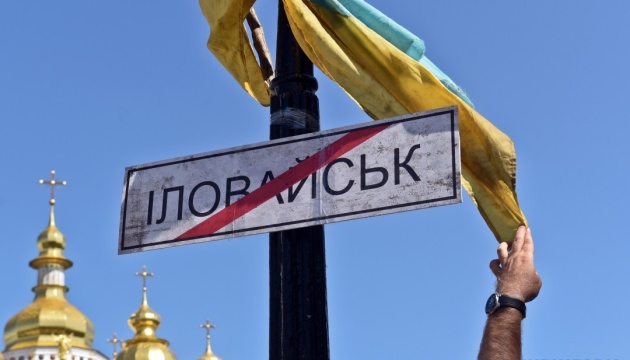The Center for Strategic Communications and Information Security strives to briefly explain to the foreign audience current issues of particular interest in connection with Ukraine.
Honoring the fallen soldiers
On August 29, Ukraine celebrates the Day of Remembrance of the Defenders of Ukraine who fell in the struggle for the independence, sovereignty and territorial integrity of Ukraine.
- The date August 29 is associated with the Ilovaisk tragedy in 2014, when Russian troops fired on convoys of ATO forces leaving Ilovaisk through the “green corridor” provided by the Russian Federation.
- Ilovaisk is a page of Ukrainian invincibility. Despite the losses and deception by the enemy, our soldiers did not give up, but continued to break out of the trap and fight.
- This day also reminds us of the aggressor’s treachery and betrayal. And that the so-called Russian “peace initiatives” cannot be trusted under any circumstances.
- Since the time of Ilovaisk, the Ukrainian army has grown stronger and is repelling regular Russian troops. Two years ago, a counteroffensive began in the south of Ukraine, which ended with the liberation of Kherson.
- On this day, we remember those who died in the Ilovaisk tragedy, as well as all the defenders who lost their lives in the Russian-Ukrainian war. As long as the war continues, we cannot publicly name our losses, but we will do our best to pay our last respects to each and every one of them.
2. Ukraine-NATO Council
On August 28, a meeting of the Ukraine-NATO Council was held at Kyiv’s request.
- The Ukraine-NATO Council was established at the NATO Summit in July 2023 and serves as a forum for joint consultations, decision-making and activities between NATO and Ukraine.
- The reason for convening a meeting of the Ukraine-NATO Council this time was a massive Russian missile and drone attack on August 26.
- The allies strongly condemned Russia’s indiscriminate attacks and reiterated their determination to further strengthen Ukraine’s defenses.
- The participants discussed further plans for the supply of air defense systems and missiles to Ukraine. The issue of creating an air defense shield, the so-called security belt, over the border regions (western regions) of the state was also discussed.
- More and more allies support lifting restrictions on the use of long-range weapons for Ukraine’s self-defense within the framework of international law.
3. Water condition
The media reported, citing the State Agency for Melioration and Fisheries, that on August 14, the Russians began discharging toxic substances into the Seim River, which is part of the Desna and Dnipro basins.
- The State Ecological Inspectorate of the Capital District has not found any exceedance of the maximum permissible concentrations of organic and mineral substances in the Desna River in the Kyiv region. The oxygen content is also within normal limits. No evidence of fish deaths was found.
- JSC Kyivvodokanal says that the situation with water treatment and supply in the capital is under control. The water supplied to homes is safe, its capacity is constantly monitored and there is no danger to residents.
- Any changes in the water quality in the river are immediately detected and the cleaning and disinfection processes of the tap water are adjusted accordingly.
- Information about possible environmentally damaging actions by the Russian side, in particular poisoning of rivers, is being examined.
- For security reasons, the Military Administration of the Kyiv Region recommends not using the waters of the Desna River at the moment and prohibiting swimming and fishing, as well as the use of river water for economic purposes and watering livestock.

